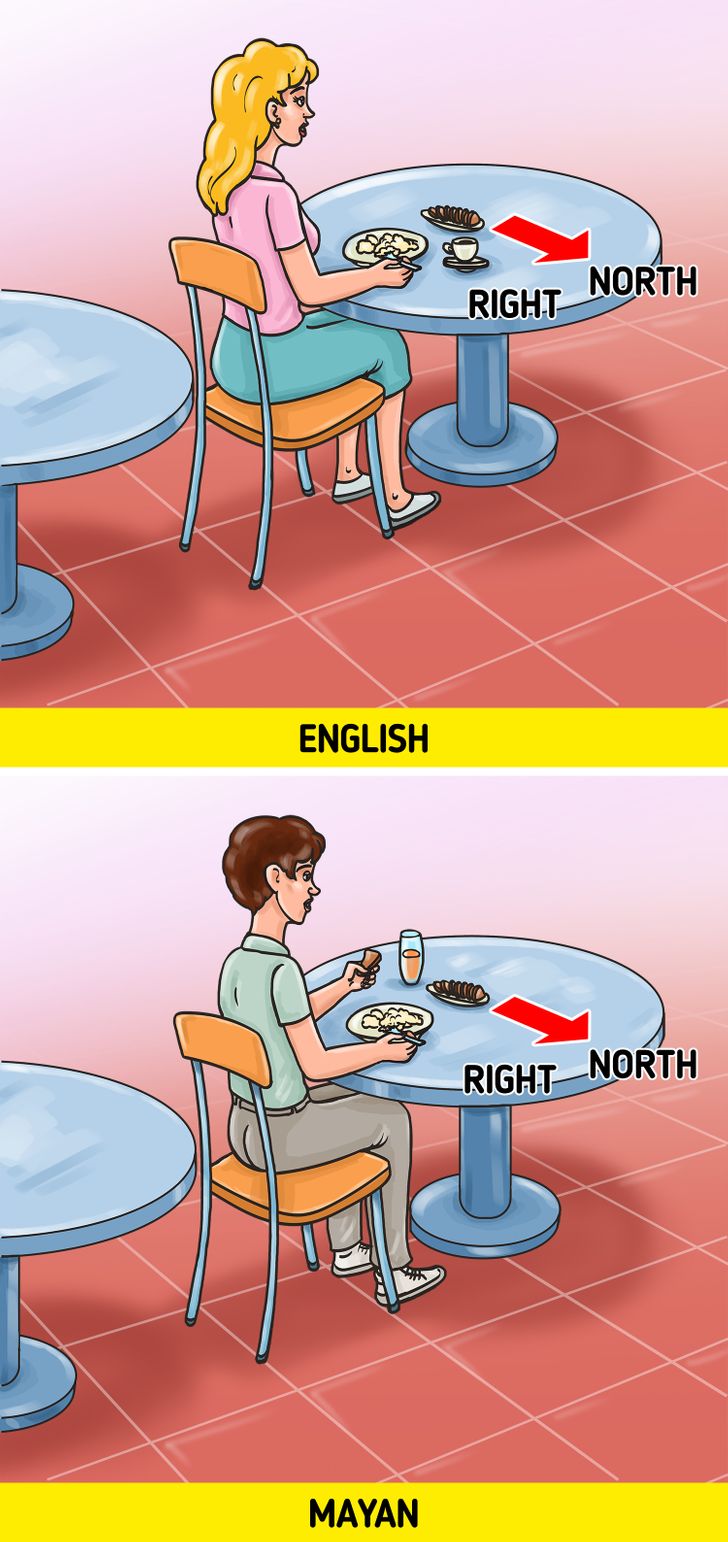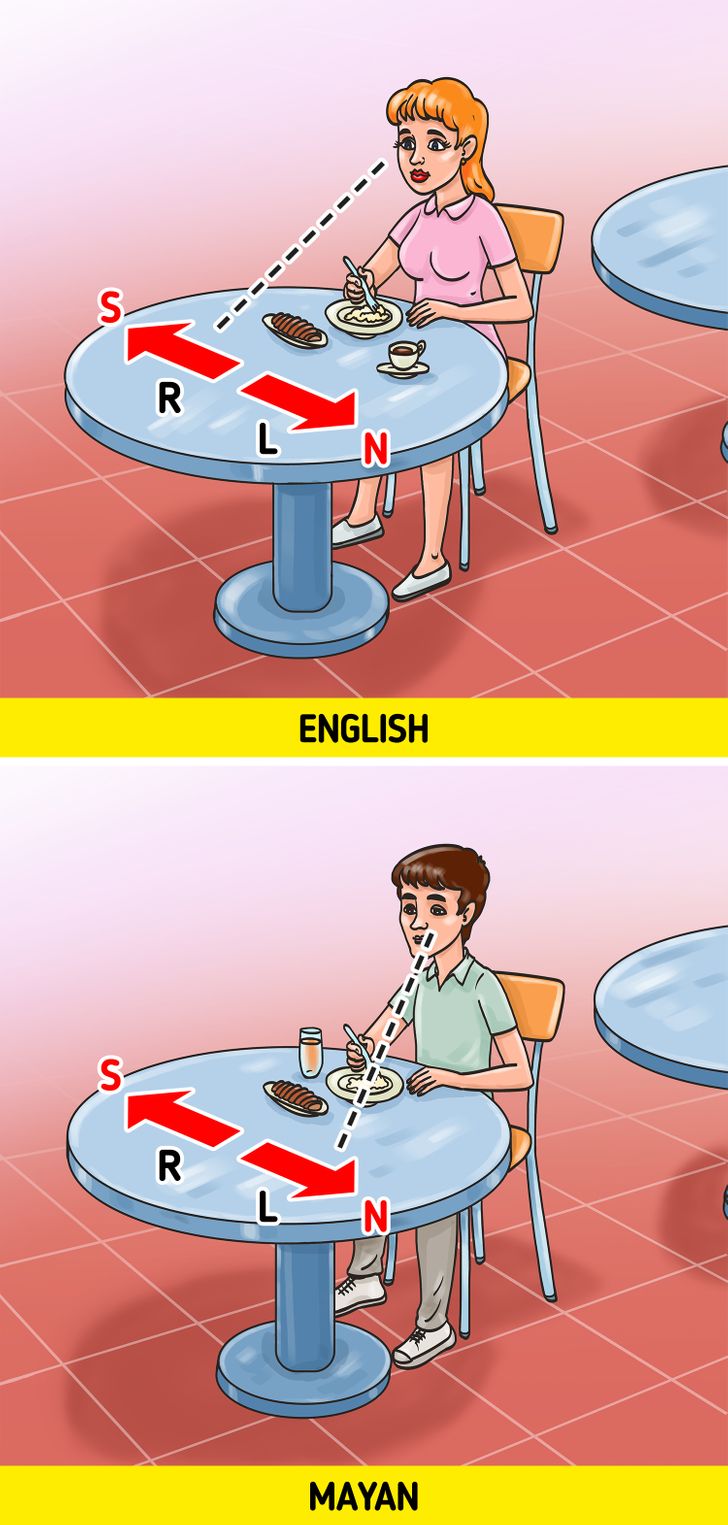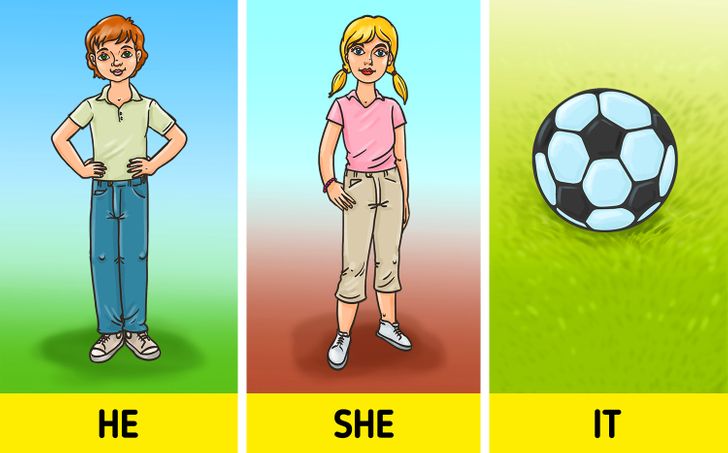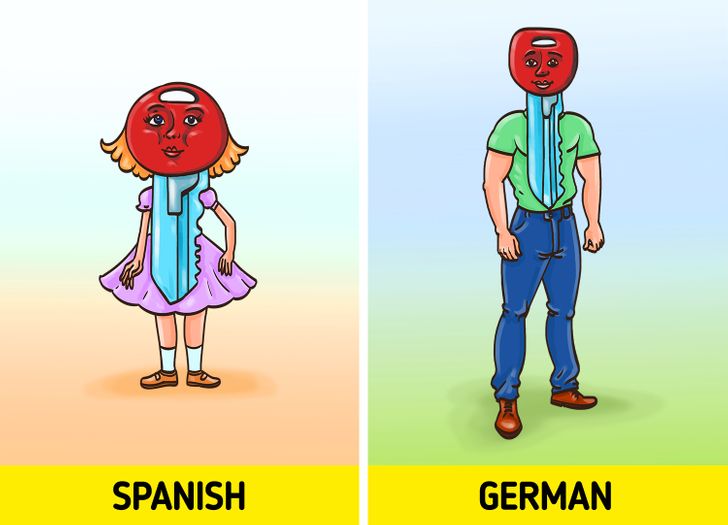15 Stories About a Little Lie That Spiraled Into a Major Issue

If you
We at Bright Side love to explore other cultures and their languages. So here’s how the way you think might change if you learn more about them.

Different cultures perceive colors differently. Some languages only have 2 words to describe colors — like dark and light. “Dark” is used for cool colors, like green, blue, and black. “Light” is used for warm colors, like yellow, red, and orange. There’s
Throughout your life, it’s even possible to change the way you see colors. For example, Greek people have 2 separate words to describe light and dark blue, whereas in the UK, “blue” is used to describe both of these colors. However, Greek speakers might start to see these 2 colors as more similar after they’ve spent a lot of time in the UK.

In the English language, we use terms like “left,” “right,” “forward,” and “back” to describe where someone should go or where an object is located. This sometimes creates a lot of confusion because one person’s left could be another person’s right.
But there are some cultures where the language helps them avoid this kind of confusion because they use compass directions, like north, south, west, and east. It would be hard for an English speaker to say where north and south are right away. But in some Aboriginal Australian languages, for example, it’s just as easy as knowing where your right and left are. It’s probably because it was important for them to orient themselves in space well, and it influenced their language.

There was an experiment held to show how people speaking different languages think. Participants sat at a table with an arrow in front of them pointing north, to their right. Then they had to turn 180 degrees to face another table with 2 arrows, one pointing north, to the person’s left; and one pointing south, to the person’s right.

The participants were then asked to choose the arrow that pointed in the same direction as the first one. For English speakers, “the same” meant “pointing to the right.” On the other hand, speakers of a particular Mayan language chose the arrow pointing to their left because “the same” meant “pointing north” to them.

Languages can have natural genders. Sometimes, nouns can be divided into animate and inanimate objects, like in Japanese. If there are classes of nouns that describe males, like boys and fathers; females, like daughters and mothers; and non-living objects — these are also natural genders. In English, we use “he,” “she,” and “it” to describe those objects.

There are also grammatical genders, which can be found in German, Spanish, and French. That means that they can use “he” and “she” to refer to inanimate objects as well. And this can influence the way they think about those objects.
In an experiment, participants were given a key and asked to describe it. Spanish speakers tended to use adjectives that fit

People who speak English see time in chunks, as a group of objects — like minutes, hours, and days. This might be the reason we think of time as “stuff” that can be saved, wasted, or lost. In contrast, the Hopi language doesn’t have tenses as we know them, and they see time as a continuous cycle.

Moreover, English speakers think about time horizontally and use words referring to front and back to talk about the future and the past. For example, you may be “looking forward” to seeing someone and wish you could go “back in time.” Mandarin Chinese speakers, on the other hand, refer to up and down instead.
Do you know any similar examples of how cultures differ in the way they think? If you speak a foreign language, have you noticed if it made you think or behave differently? What’s your favorite thing about learning languages?











